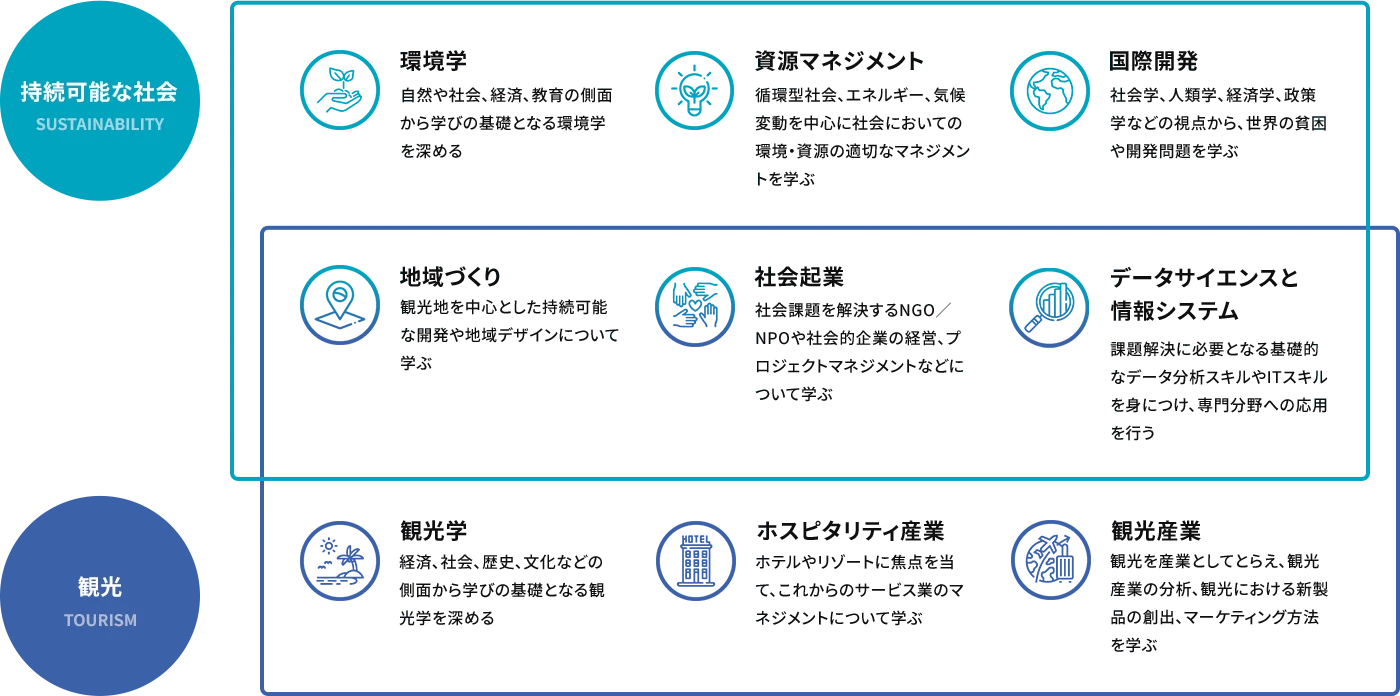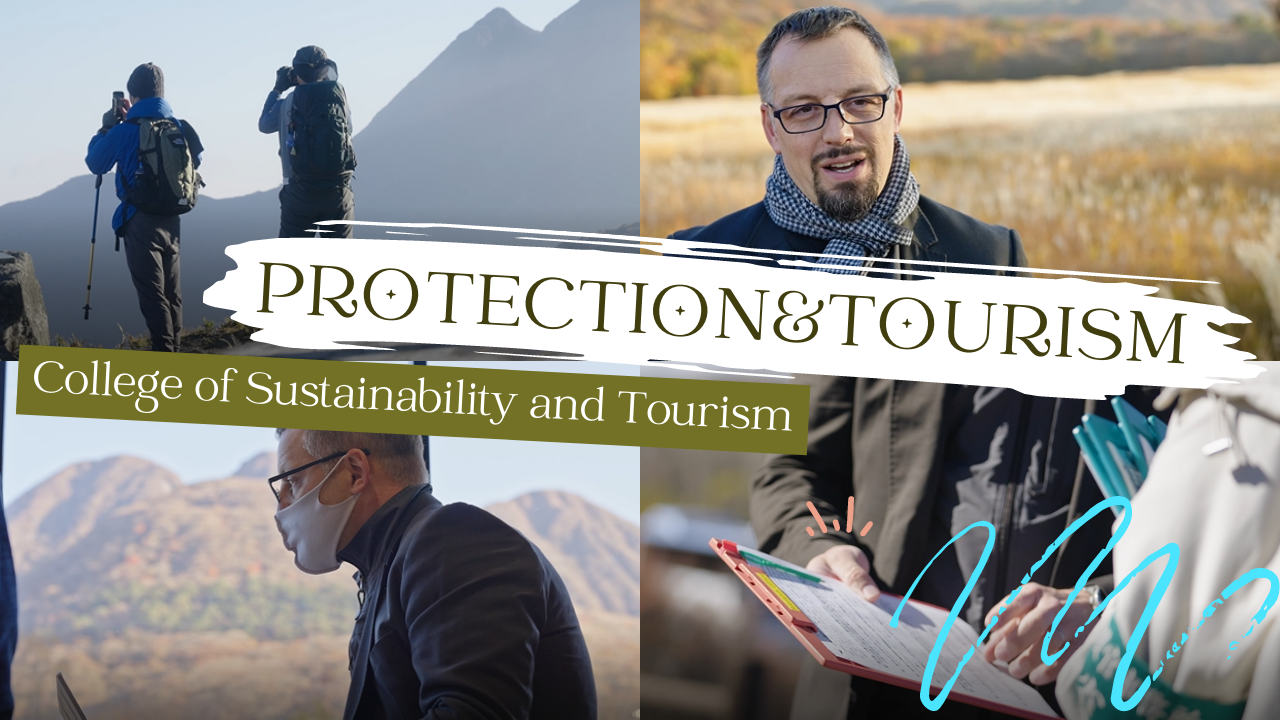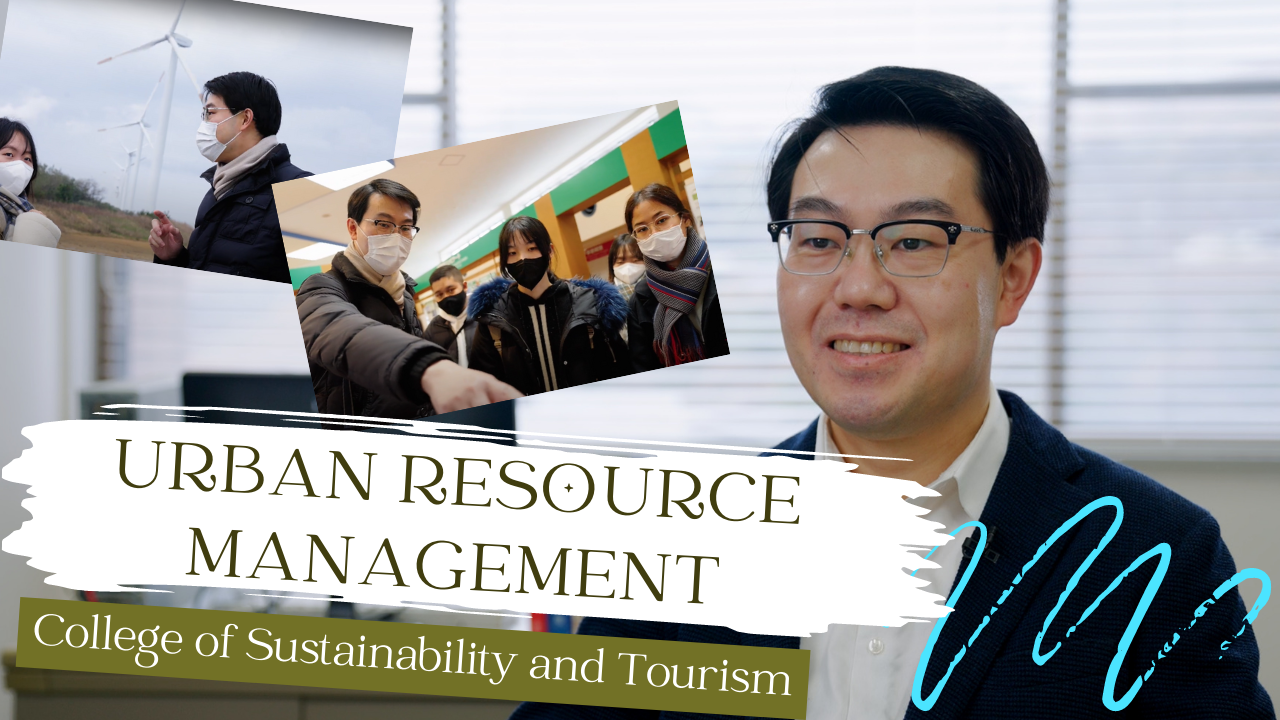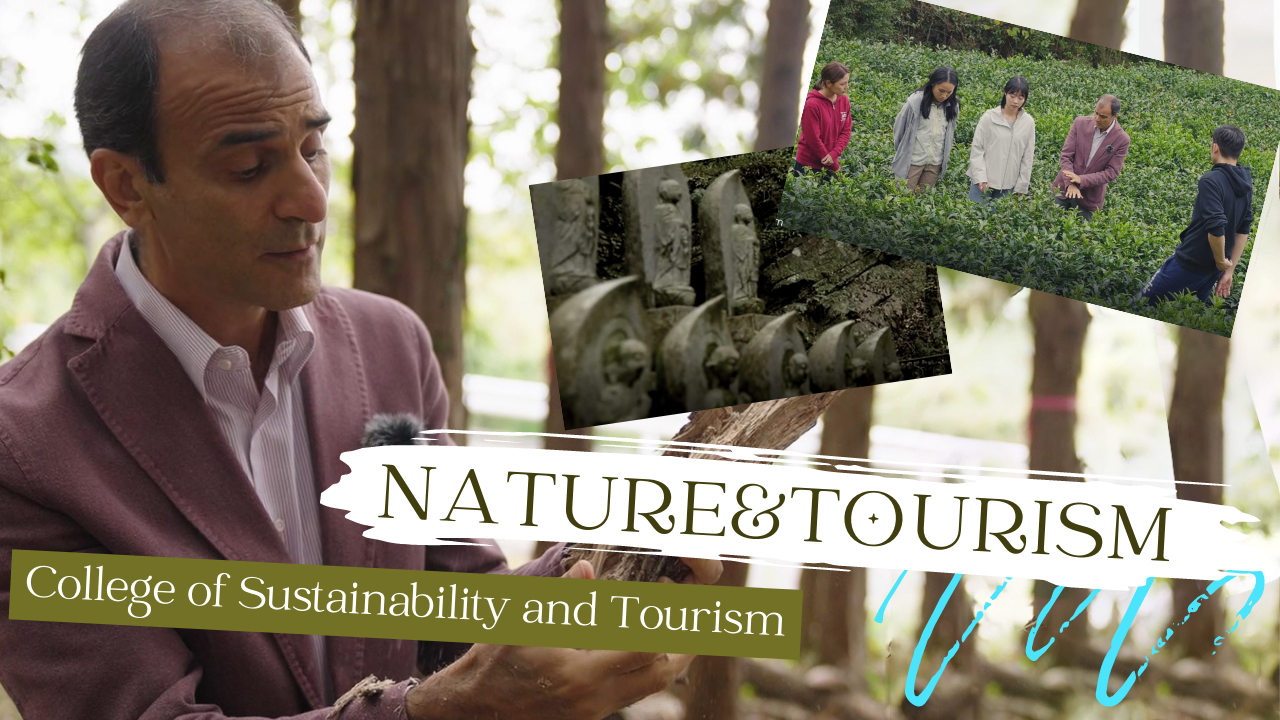サステイナビリティ観光学部(ST)| APU 立命館アジア太平洋大学

サステイナビリティ観光学部 ST
サステイナビリティ観光学部(ST)
サステイナビリティ観光学部(ST)は持続可能な社会の形成を研究するサステイナビリティ学と、サステイナブル観光学の両方を学び、さらに実践することができる世界でも数少ない学部です。STの教員は、世界トップレベルの学術誌、経済協力開発機構(OECD)や国連世界観光機関(UNWTO)、日本政府や地方の政策委員会等で活躍しており、環境・開発・観光・社会起業・ICTのスペシャリストが揃っています。STでは、地域の自然・歴史・文化の価値を発見し、保護しながら観光資源として磨き、グローバリゼーションの中の地域の持続可能な開発に貢献することができる人材を育てます。
学生は様々な国や地域の社会問題に取り組み、100以上の国・地域から集まる学生とともに学び、SDGsの達成に資する能力を身に付けることができます。教育の特色として、座学だけでなく、国内外での現場でのProblem-based learning(課題解決型学習)を多く取り入れ、さらに調査研究やデータ分析のスキル修得も強化します。
コンセントレーション
アジア太平洋地域の多様な文化、歴史、社会、自然環境や歴史情勢などに関する基礎知識や言語運用能力を核として、アジア太平洋地域の諸問題に関する専門性や総合的な問題解決能力を形成するため、次の学修分野を設置しています。なお、APUでは学修分野や学部を横断して履修することができます。
カリキュラムの詳細は、 アカデミック・オフィスサイトよりご確認いただけます。
科目一覧
1回生時には教養科目及び言語科目を履修し、大学で学ぶ上での基礎力を養います。2回生からは学生個人の関心分野にあわせて専門科目を履修します。APUでは所属学部の専門科目はもちろん、他学部の専門科目も履修が可能なため、自身にとって最適な学びを選択することができます。
共通科目一覧
APUリテラシー
- スチューデントサクセスワークショップ
- 多文化協働ワークショップ
- 平和・ヒューマニティ・民主主義
- 異文化間コミュニケーション入門
- 異文化フィールドワークI・II
- 多文化比較論
- グローバルリーダーシップの基礎
- 海外学習デザイン
- ブリッジプログラム
- アジア太平洋の言語
- アジア太平洋の宗教
- アジア太平洋の地理
- アジア太平洋の文化と社会
- アジア太平洋の歴史
- 日本の政治と社会
- 日本のポピュラーカルチャー
- 日本の歴史
- 日本国憲法
- 特殊講義(日本学)
- 異文化間コミュニケーションの応用と実践
- グローバルリーダーシップのためのスキルと実践
- ソーシャルインパクトのためのグローバルリーダーシップ
- 茶道
- 華道
- 日本の伝統芸能
学部専門入門
- 持続可能な開発入門*
- 観光学入門*
- 政策学入門
- 社会学入門*
- 文化・社会学入門
- メディア学入門
- 国際関係論入門
- 比較政治学入門
- 政治学入門
- 世界経済とグローバル課題
- 経済学入門
- 基礎数学
- 統計学
- 社会科学のための統計学*
- 上級数学
*これらはSTの学びに強く関連する科目です。
世界市民基盤
- 法学
- 心理学
- 生命倫理
- AIと社会
- 西洋哲学
- 中国哲学
- 西洋美術
- 近現代の科学技術
- ネゴシエーションスキル
- 論理とクリティカルシンキング
- キャリア形成のための自己分析
- キャリア形成のための多様な視点
- 特殊講義(共通教養科目)
- ウェブデザイン
- 情報処理入門
- プログラミング入門
- 情報リテラシー
- ウェルネス
- メディア制作ラボ
- インターンシップ
- キャリア形成のためのキャリア分野分析
- AIとデータサイエンス
- GIS入門
- データベースシステム
- 特殊講義(ICT)
- 情報システムプログラミング
言語教育科目
日本語科目
- 日本語(初級・中級・中上級・上級)
- キャリア日本語
- 日本語・日本文化
- 日本語・日本社会
- 漢字・語彙スキルアップ
- 自己表現のための日本語
- 日本語コミュニケーションスキル
英語科目
- 英語(初級・準中級・中級・準上級・上級)
- 英語ディスカッションとディベート
- メディアのなかの英語
- ジャーナリズムのための英語
- ビジネス英語A
- ホスピタリティ・観光の英語
- 英語コミュニケーション・スキル
- ビジネス英語B
- 英語小説講読
アジア太平洋言語科目
- 中国語I – III、グローバルラーニング
- 韓国語I – III、グローバルラーニング
- マレー語・インドネシア語I – III、グローバルラーニング
- スペイン語I – III、グローバルラーニング
- タイ語I – III、グローバルラーニング
- ベトナム語I – III、グローバルラーニング
特定講義
- 英語検定試験対策講座I – III
- TESOL
- 日本語教育のための日本語学
- 日本語教授法
- アジア太平洋言語入門
- 集中言語研修
- 特殊講義(言語教育科目)
ST専門教育科目
環境学
- 生物多様性
- 環境政策とガバナンス
- 環境経済学
- 環境教育
- 気候変動
- 環境と社会
- 公園と保護地域
資源マネジメント
- 環境汚染と防止
- 資源マネジメント
- エネルギーマネジメント
- 循環型社会論
- サステイナブルビジネス
国際開発
- 開発社会学・人類学
- 開発政治論
- 紛争と開発
- 国際開発協力
- 開発政策
- 開発と経済
観光学
- 観光社会学
- 観光文化論
- 文化人類学
- 観光とメディア
- 遺産観光論
- 観光経済学
観光産業
- ツーリズム・オペレーション
- ヘルス & ウェルネスツーリズム
- MICE産業論
- スペシャルインタレスト・ツーリズム
- 観光地マーケティング
ホスピタリティ産業
- ホスピタリティ・オペレーション
- フード&ビバレッジ・オペレーション
- サービス・エクスペリエンス
- リゾート・マーケティング
- レベニュー・マネジメント
社会起業
- 会計入門
- 経営学入門
- マーケティング入門
- 経営戦略
- 組織行動論
- プロジェクトマネジメント
- ソーシャルアントレプレナーシップ
- NPO/NGO 論
地域づくり
- レジリエント都市論
- サステイナブル都市開発と計画
- サステイナブルツーリズム
- 観光地開発と計画
- 農村開発と観光
- 都市デザイン
- コミュニティ開発論
データサイエンスと情報システム
- GISとリモートセンシング
- インターネット技術とアプリケーション
- ビッグデータ分析
- システムモデリング
- 応用統計分析
- ニューテクノロジーと未来社会
アカデミック・スキル
- 社会調査法入門
- 質的分析技法
- 文献講読 I
- 文献講読 II
演習・最終成果
- 専門演習
- 卒業研究
- 卒業プロジェクト
- キャップストーン
オフキャンパス・プログラム
- 専門実習
- フィールド・スタディ
- 専門インターンシップ
STの詳しい情報はこちら
外部リンク



